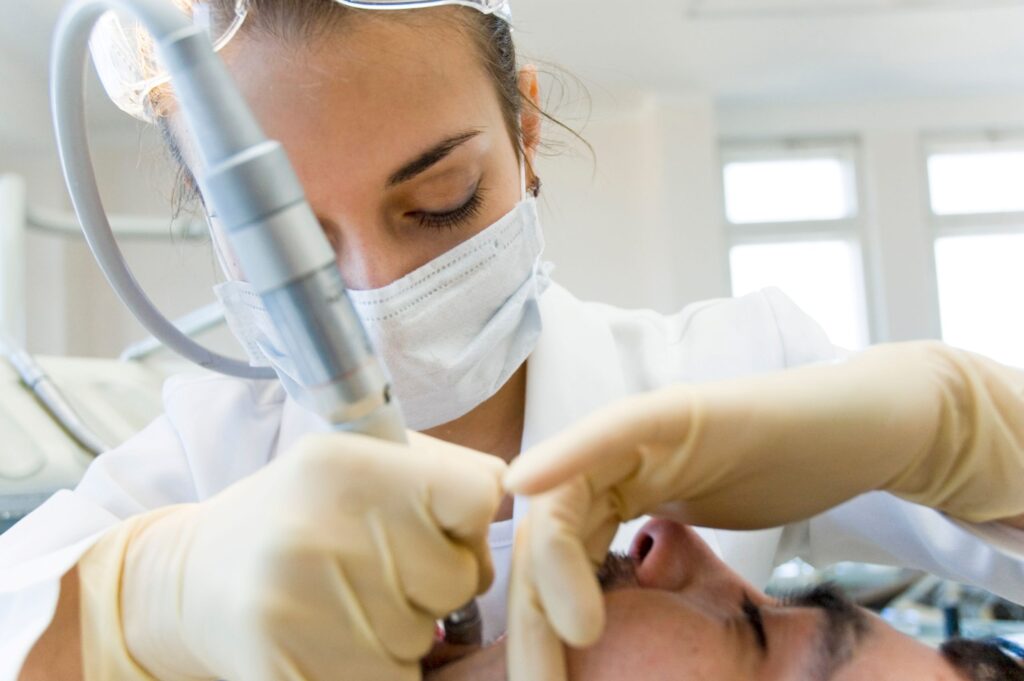In some orthodontic cases, tooth extraction or removing teeth may be required to get the optimum outcomes, including straight teeth and a radiant smile.
What is Tooth Extraction?
A tooth extraction refers to removing your tooth from its socket. Typically, this brings up unsettling mental pictures of dentists and uncomfortable operations that will only make you feel worse. Knowing that tooth extractions are often only recommended as a last resort after all other treatment options have failed might give you some peace of mind.
When Should You Have Your Teeth Extracted?
The following are some typical causes for tooth extractions in Gibsonton:
- Gum Disease
The majority of patients are shocked to find that gum disease can call for tooth extractions. In time, untreated gum disease will prove to be highly damaging to the teeth. In actuality, untreated gum disease has the same ability to destroy teeth as tooth rot does. Teeth get progressively loose as their support structures degenerate. They will eventually fall out or need to be extracted, which will be followed by tooth replacement.
- Tooth Decay
The leading cause of tooth extraction is dental decay. Patients who need tooth extractions due to tooth decay may put off visiting the dentist for years. The dentin and inner portion of the tooth, as well as the dental enamel, are gradually affected by tooth decay, which eventually consumes the entire tooth. Following this, bacteria invade the tooth’s pulp, leading to a root canal infection. The more damage that results from delaying treatment for a rotting tooth, the worse it will get. The dentist may suggest this oral surgery near you for dental restoration if it is determined that the tooth cannot be salvaged due to severe decay.
- Overcrowded Teeth
A tooth that does not break through the gum line is said to be impacted. Additionally, teeth that only partially erupted are regarded as impacted teeth. Tooth impaction can be caused by a variety of factors. Impacted teeth can be caused by overcrowding, displaced teeth, and teeth that arise at an abnormal angle. Because the jaw cannot accept such teeth, the wisdom teeth are typically impacted.
- Broken Tooth
It’s possible that a tooth that breaks right at the gum line or close to it won’t have enough visible structure left to bond to a dental repair. It will be challenging, if not impossible, to attach a dental crown to a tooth that has broken. Your fractured tooth will be extracted and replaced by our dental staff, restoring your smile and paving the way for better oral health in the future.
Types of Extraction
There are two primary methods for removing teeth:
- Simple extraction is used for teeth that are visible, this procedure entails numbing the area and removing the tooth with forceps.
- Surgical extraction is a more involved procedure and is done to remove impacted or difficult-to-reach teeth, surgical extractions often involve making incisions and slicing the tooth into pieces.
Tooth Extraction Aftercare
Following tooth extraction, there are typically:
- Follow the dentist’s instructions when taking prescription or over-the-counter painkillers.
- Bite down on gauze to stop bleeding.
- Use ice packs.
- Eat soft foods and refrain from chewing on the extraction site.
- When brushing and flossing, be gentle and avoid the extraction site.
- Alcohol and smoking might slow the healing process; avoid them.
- Attend further dental appointments that have been set up so that you can be monitored and given more guidance.
Make an Appointment
Put your trust in our dental experts, and we’ll work hard to ensure that your oral surgery in Gibsonton is both quick and painless. In addition, our Orange Blossom Oral Surgery dentist can assist you with your other oral health problems; reach out to us to make an appointment if you need a tooth extracted, haven’t gone to the dentist in six months, or are searching for a new clinic to receive care.


